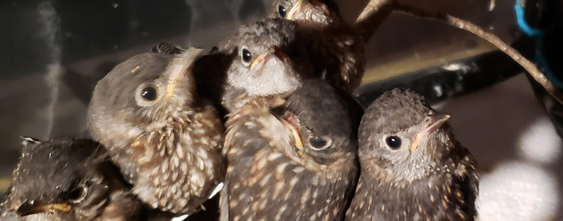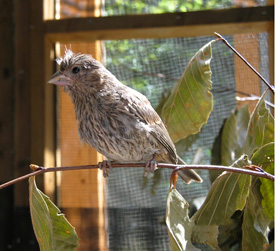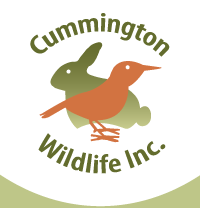

Fledgling birds are one of the most common wildlife to be mistaken for injured or ill animals. These birds have flown down from their nests, but do not have the ability to fly up into a tree. Their immature wings flutter, but they remain on the ground. This is a normal stage of development for birds. The parents take care of the fledgling by feeding it insects on the ground every 15-30 minutes. If you see a small bird on the ground, take time to watch from a distance. If you see an adult bird feeding the fledgling, than no intervention is needed. Please note that fledgling birds can become easy targets for dogs and cats in the neighborhood. Keep your pets under control and attempt to humanely keep neighborhood cats from the area.
If you find a fledgling that is obviously injured or ill or has not been fed by a parent for two hours, please refer to the emergency care section. This animal needs a wildlife rehabilitator.
If you have a healthy fledgling brought to you in error, it is possible to re-unite them with their parents. This must occur within approximately twenty-four hours of being removed or you risk the parents leaving the vicinity. First, bring the baby as close to the area as possible where it was found. This must occur during daylight hours. Allow the baby to make distress calls to the parent. This vocalization is the fastest way to locate the mother. Find a safe area for the fledgling, such as an area with bushes for protection. The fledgling can be placed under the bush or on a low branch. Observe the fledgling from a distance so the parents can feel safe. If you observe the parents feeding the fledgling, congratulate yourself on re-uniting a family! If you don't observe a parent within two hours, the fledgling will need to be placed with a wildlife rehabilitator.
